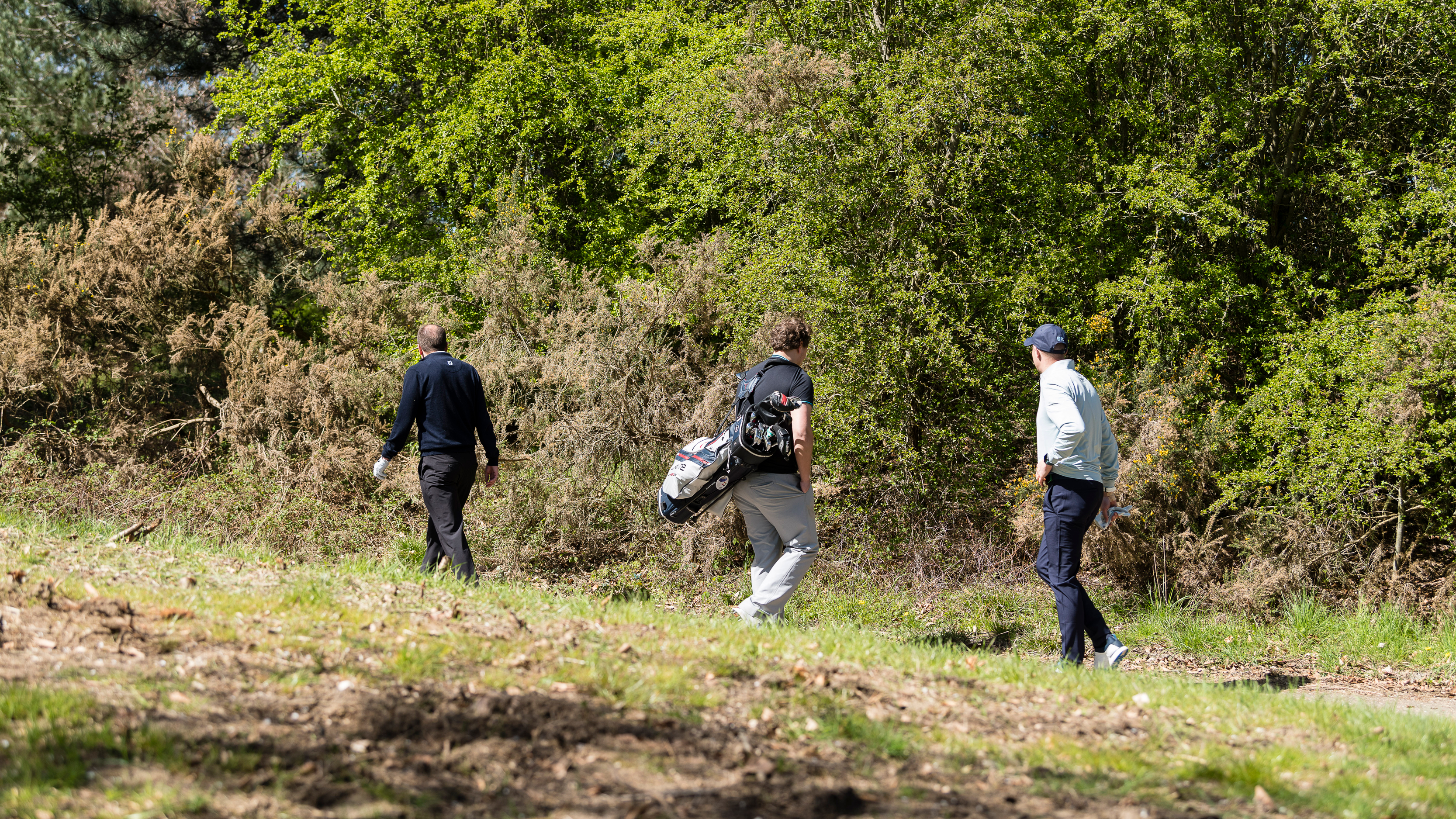10 Signs You’re No Longer A Beginner Golfer
It's a great feeling when you start making progress as a golfer. But how do you know you've fully shaken off the 'beginner' moniker?


We’ve all been a beginner at some point – that player who has a major panic over having a small gallery on the 1st tee, or takes an age over every shot. Once you’ve got a few rounds under your belt, however, and you start to realise that everyone, including pros, top, thin and shank the ball, you start to relax and enjoy the game more.
At some point on your golfing journey, you lose that ‘beginner’ tag. It might be after a dozen rounds; when you’ve played in a club competition; or when you finally learn how to mark a card. There’s no official point when you reach the next level, more just a few signs that you’ve left your learner plates behind.
1. You stop worrying about being watched

When you’re new to golf, it can be quite intimidating have a group of golfers coming up behind you. At first it can feel like everyone is watching you, and you’d do anything to get your shot away before the group behind catches you up on the tee. In time, you start to care less about playing a poor shot in front of people, and when you actually enjoy having a small crowd on the 1st tee… that’s when you know you’ve reached the next level.
2. You don’t tee the ball up so high

Lots of beginners tee the ball up so high that it makes it possible to go under the ball. It’s the idea that if the ball is sitting up nice and high, it will make it easier to get the ball airborne. Quite often, new players will even tee the ball up a few inches high when hitting an iron. Then you realise you’re not hitting the center of the clubface, and that having at the ball teed up high doesn’t work when you’re looking to hit down on the ball with an iron. You start to think less about getting the ball airborne, and more about the strike.
3. You become fluent in Stableford
Marking a Stableford scorecard might be simple if you’ve been playing for a while, but it’s no so easy to understand when you first start playing. When you know how many points a 27-handicapper has scored when they’ve just eagled the par-5 6th (stroke index 1) without taking three holes to work it out and using the fingers on your hands, you’re probably no longer a beginner. After a while, you’re confidently marking your fourball’s card and calling out what everyone has scored on each hole.
4. You have a basic understanding of the Rules

It’s easy to break the Rules of the game when you’re new, and even experienced players do it without realising. When you’re a little wet behind the ears, there are a few Rules that get broken quite frequently: not adding a penalty stroke to a ball that goes out of bounds; not taking a drop correctly; and teeing up in front of the markers to name but a few.
As you play more regularly, and learn from more experienced players, your Rules knowledge improves. Very few golfers know each and every Rule – not even Tour pros – but you get the know the ones that crop up more times than most during a round.
Subscribe to the Golf Monthly newsletter to stay up to date with all the latest tour news, equipment news, reviews, head-to-heads and buyer’s guides from our team of experienced experts.
5. You’re aware of your pace of play
The more you play – and especially if you become a member of a golf club – the more you learn about the pace of play. Slow play is one of the most talked about topics in the game at both professional and club level.
At first, it’s only natural that you’re more concerned with getting the ball airborne, and you can get wrapped up in your own game. When you start to keep an eye on your watch and give your fellow players a nudge if you’re falling behind the group in front, that’s a sure sign you’re no longer a beginner.
6. You talk like a golfer
It doesn’t take long to get bitten by the golf bug, and before long you’re talking like you’ve been playing the game for years. Suddenly you’re a golf course architect and a swing expert, and you’re using phrases that, six months ago, would have been completely foreign.
7. You don’t obsess over finding your ball

We’ve all been that player would couldn’t accept a ball being lost. When you’re starting out, you’re so keen to register your score that you’ll look long and hard for it, often when there is absolutely no hope whatsoever of it being found. The game teaches you to move on – as do your playing partners.
8. You learn to pick up
It doesn’t take long before you realise that a 12 isn’t going to score you any points in a Stableford competition, and that there’s no shame in picking up – everyone does it. Many golfers will pick up the moment they know they can’t score a point, which helps to speed up play.
9. You shout Fore!

Not only do you shout “fore”, you do so with conviction. There’s nothing timid about it – just a good, lengthy shout to warn your fellow golfers to take cover.
10. You pay up
Paying out to the winner/winners is crucial. You don’t want to gain a reputation for being that person who ducks off without buying the drinks, or not coughing up what you owe, even if it’s just a few dollars. That's a big no no.

Michael has been with Golf Monthly since 2008. A multimedia journalist, he has also worked for The Football Association, where he created content to support the England football team, The FA Cup, London 2012, and FA Women's Super League. As content editor at Foremost Golf, Michael worked closely with golf's biggest equipment manufacturers and has developed an in-depth knowledge of this side of the industry. He's a regular contributor, covering instruction, equipment, travel and feature content. Michael has interviewed many of the game's biggest stars, including seven World No.1s, and has attended and reported on numerous Major Championships and Ryder Cups around the world. He's a member of Formby Golf Club in Merseyside, UK.